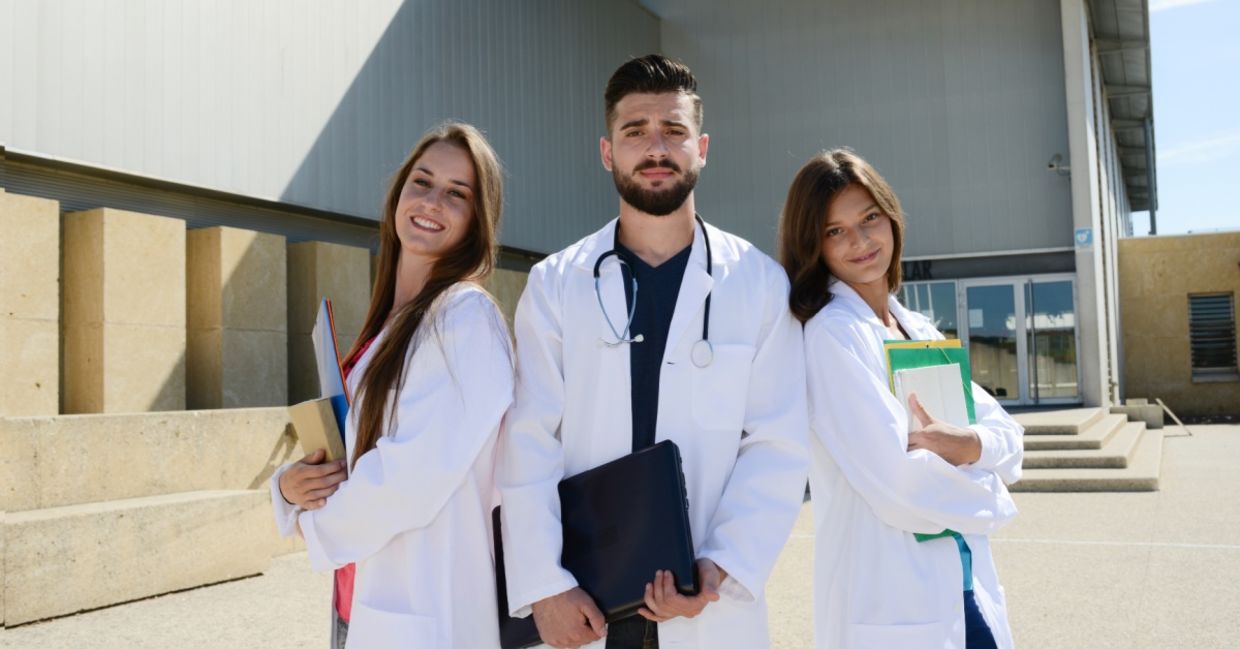
(JP WALLET/ Shutterstock.com)
Today’s medical schools train the doctors of tomorrow. Medical students learn all about diagnosing and treating patients with the newest technology available. But now a new medical school in Bentonville, Arkansas has taken a different approach.
The Alice L. Walton School of Medicine (AWSOM) which recently welcomed its first class of 48 students with a white coat ceremony has a very different focus, reported Forbes. The school, founded by philanthropist Alice Walton, was opened to train students to practice holistic care by taking a comprehensive approach to medicine that includes the patient's emotional and social needs.
No tuition will be charged for the first five graduating classes. Walton hopes that many of the new doctors will bring their knowledge to local communities, especially in rural underserved areas in Arkansas.
Fixing Medicine With a Holistic Approach
While the medical community is recognizing the importance of holistic medicine for better outcomes, it’s not so easy to accomplish due to increased administration duties and doctor shortages. This leaves doctors with only enough time to address the specific symptoms of the patients. Plus pay-for performance incentives also shorten the time doctors can spend with their patients.
This is why Walton saw the need to take a renewed approach to medicine that instead of drilling medical students to only look at symptoms and performing tests, according to TIME, prioritizes preventive medicine that uses whole-health principles. While these are not new ideas, they just haven’t been prioritized by traditional medicine.
Recreating Health Care From Scratch
Change isn’t easy, especially when there isn’t a simple solution. This is certainly the case in places like Arkansas that ranks 48 out of the 50 states in the number of adults in poor health and has the highest maternal death rate and teen births in the US.
Walton started by founding the Heartland Whole Health Institute in 2029 which focuses on health advocacy, research, and education about preventive care. Now with AWSOM, she is finding a better way to train the future doctors who will practice holistic medicine.
“They will get all the science and disease knowledge they need to manage the ‘sick-care’ side of things,” Walton told TIME. But “I wanted to create a school that really gives doctors the ability to focus on how to keep their patients healthy.”
A New Curriculum
The head of the school is Dr. Sharmila Makhija, a gynecologic cancer surgeon from Alabama who shared Walton’s commitment to holistic health and to improving the quality of care offered in rural areas.
“The foundation [of the medical school’s curriculum] is traditional medicine but enhanced with the humanities and the arts to improve the delivery of care — so we improve on how we [act] with patients and how we partner with patients,” Makhija said.
The doctors in training will learn about food and nutrition by gardening and spending time at a teaching farm so that they can pass these lessons about nutrition to their patients. They will also be able to design parts of their curriculum by doing research projects and community service.
We can have whatever curriculum we want, but if they are thrown out in an environment where they are not practicing whole health, then it’s for naught,” Walton said.
If these new methods work, AWSOM can be a shining example of what a medical school should be. And this can change the future of healthcare in a more comprehensive and kinder way by putting the patient first.
YOU MIGHT ALSO LIKE:
Can Your Body Heal Itself?
First Tribally Affiliated Medical School Opens in the US
Medical Students Will Soon be Able to Study Without Tuition







